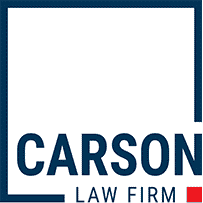The debate about the legality of wholesaling burns brightly on BiggerPockets and the rest of the Internet. I’ve said my peace on the matter before, so today I want to talk about something different: deceptive practices. Wholesalers often find themselves stretching the truth to close the deal, whether it’s misrepresenting that you’re the end buyer, or even posting a sign that says “We Buy Houses.” Whenever counseling a client on wholesaling, this is the point I try to drive home: be completely up front in all your dealings with buyers and selling, and never misrepresent your role in the transaction, not even in your advertising! Here’s my advice: don’t do it, or you might find yourself being sued for fraud.
Fraud is a claim that finds its roots in the English common law. In most states, there is no specific codification by statute, but the elements of a fraud claim are pretty much the same across the country, and can be found in any law student’s torts textbook:
- The fraudster must make a representation of a fact;
- The fact must be false;
- The fact must be material to the transaction;
- The fraudster has knowledge that the fact is false or be recklessly ignorant of the falsehood;
- The fraudster has an intent to deceive another by inducing them to rely on the truth of that fact;
- The victim has to be ignorant of the falsehood;
- The victim relied on the misrepresentation;
- A reasonable person would rely on the misrepresentation;
- The victim was injured by the misrepresentation.
Opinions don’t generally give rise to a fraud claim, such as telling the buyer that this house is really nice — that’s called “puffery” and it’s an acceptable sales tactic. HOWEVER, misrepresenting to a seller that “We Buy Houses” is certainly a misrepresentation from a wholesaler, and could be considered actionable fraud.
What are the consequences of getting accused of fraud? Well, morally, they’re obviously not going to impact your business well. Generally speaking, though, fraud is an “intentional tort,” which means that your injured party can recover both actual economic damages and punitive damages, which means that it’s a big enough penalty to make you “feel the pain.” There’s no ceiling — and you can lose everything.
Let’s examine a case study of a typical wholesale transaction with a little bit of deceit mixed in, and what happens next.
Walt Wholesaler, a newbie wholesaler without the cash to close his own deals, posts signs around his community that state “We Buy Houses” with his cell phone number. Suzy Seller, who has been unsuccessfully trying to sell her house through a broker for over a year, calls Walt and asks what the deal is. Walt represents to Suzy that he does purchase houses for cash, and he can close in 10 days or less.
In reliance of the promise of fast cash, Suzy invites Walt to inspect the house. Walt offers Suzy substantially less money than Suzy was expecting, but reiterates that he is a cash buyer and he can close fast. Reluctantly, Suzy signs the contract and accepts the lowball offer. Walt then assigns the contract to an end-buyer for a $5000 assignment fee, and he never informed Suzy of this fact.
Let’s walk through the elements of fraud in examining whether Walt did anything wrong.
- Is there a misrepresentation? I think there is. From the very beginning, Walt misled Suzy into believing that he was the end-buyer with enough cash to buy her house.
- Is the fact false? In this scenario, we can assume that it’s false because Walt doesn’t have the ability to buy Suzy’s house with cash.
- Is the fact material? Given that Suzy took a hit on the purchase price solely because of Walt’s promises that he would pay cash and close fast, we can assume that these facts are important to Suzy.
- Does Walt know that the fact is false? Yes.
- Does Walt intend to induce Suzy to rely on his misstatements? I think most wholesalers agree that the core of their value proposition is providing people with fast cash in exchange for property. There is inducement here.
- Is Suzy ignorant of Walt’s inability to close himself? This element is a little tricky, but for the sake of argument, if Suzy is signing the contract because she thinks she’s dealing with the end-buyer with the cash, then I think that she doesn’t know what Walt is about to do.
- Did Suzy rely on the misrepresentation? There’s definitely reliance here — see number 3.
- Was the reliance reasonable? Given that wholesaling is not a very well-known strategy outside the real estate community, I’d say Suzy was reasonable in relying on Walt’s statements. It’s why “isn’t that illegal?” is a common reaction to explanation of the strategy. Much of it sounds like a bait and switch.
- Was Suzy injured? This is the trickiest element to prove, however, the evidence can be found right in the public record — we can check how much Walt sold the house to his end-buyer for. Had Suzy waited around for market price, it is possible, if not likely, that she could find another end-buyer herself without taking the hit. The fact that Walt sold the house for more is proof positive that Suzy lost at least a little bit on the deal after being induced by Walt’s promises that he was the end-buyer.
As you can see, this is not a slam-dunk case for any plaintiff’s attorney, but it’s enough food for thought to get you thinking. Any misrepresentation — especially in the world of real estate — can land you in hot water. Those “We Buy Houses” are especially offensive when you’re not the one doing the buying. You may view your profit as a fee for services (“bringing the buyer and seller together”) but I guarantee that an angry seller is not going to see it that way. Be careful out there, and don’t do anything that might be considered deception to an unsuspecting seller or buyer.


Leave a Reply